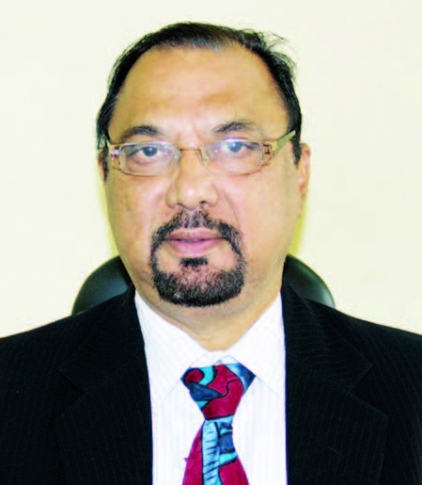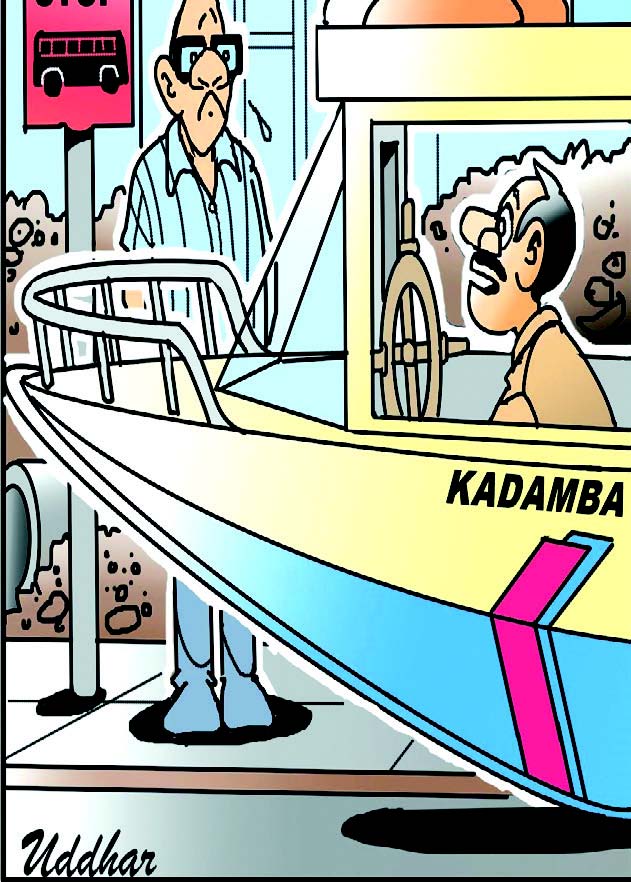
Marian Pinheiro
Quid pro quo is a Latin phrase used in English to mean an exchange of goods or services.
Basically it’s a give and take transaction. The literal meaning is ‘something for something,’ or ‘one thing for another,’” A reciprocal relationship: ‘I do this for you, then you do this for me.’”
In fact, quid pro quo transactions have been the core of human relationship in almost all aspects of human life. Be it the religious, social, business and of course definitely in politics. In religious transaction its camouflaged as devotion or faith. All religions have accepted practices of quid pro quo in the form of fees or charges for special services or pujas and special prayers like novenas etc all aimed at collection of money from the faithful.
Whether such prayers, services or pujas does indeed have any effect at all is a question, but evidence is not supportive of any favourable effects. People also have this practice of depositing gold or huge donations to seek favours from a particular deity. Politicians have upgraded their trick to a hilarious level that especially during, elections they do visit religions centres of many religions, of course keeping in mind the nature of the electorate they have to face.
Sometimes Gods becomes smarter than men, making almost all candidates to visit those religious centres and special prayers are also offered. Elections are of course a bountiful time for the Indian Godmen. Even in social life quid pro quo takes place in a subtle mode.
Funding of elections and of political parties by businessmen is not something new in India. It had existed right from the time of first elections in the counntry. The political party and politician often make people to believe that this is necessary, failing which the government has to foot the huge cost of election campaigning. There were also rumours and unverified news that businessmen often contribute, depending upon the extend of benefits/favours they are perceived to receive when the particular political party comes to power. This was one way of channelizing the black money accumulated by these business houses in a beneficial manner.
Then there was this issue of funding of political parties by underworld and those caught for their illegality by the arms of law.
On the plank that, NDA government would get rid off all these evil by bringing in transparency, Electoral Bonds as a mode of funding for political parties in India was introduced in 2017. Then A five-judge Constitution bench headed by Chief Justice D Y Chandrachud ruled that voters had the right to information that's necessary for them to cast their vote, and asked State Bank of India (SBI), and the Election Commission to upload all the information regarding these electoral bonds to enable the public to know the truth, on 15 February 2024.
The wire reported that “ According to the election watchdog’s report, the total donations declared by the national parties for 2022-23 was Rs 850.438 crore of which Rs 719.858 crore went to the BJP alone”
What is shocking is not who donated money to whom, but the donor and the timings reveal that such donations usually took place after an illegality or activity of the donor was caught in the radar of the law enforcement directorate or other investigating agency resulting in such agency dropping any further proceedings or investigation. This is the rotten apple in the electoral bond system.
One, there was an unmistakable link between the investigating department, and the ruling political party which was supposed to act independently without fear or favour. Thus, tarnishing the whole image of these central investigating authorities not only within the country but the whole world.
Secondly and more importantly, there is a close link between whose case is investigated and why with the political planning and ambitions of the ruling elite, a fact which has affected and established the presence of bias of these investigating agencies.
As a result of these developments, the Indian democracy stands to be shamed as a democracy and claiming that India could be the mother of democracy sounds hollow, inside out.
To save Indian democracy, time has come to think differently, and debate intellectually.
Should India require political parties who have proved to be the cause and root of corruption in the country?
Can India have a healthy and fruitful democracy without political parties of any sort?
Shouldn’t India move to the basic modus of democracy, where in people who live in a defined geographical area in the country, elect their representatives? They are then chosen by the people, not because they represent a political party, but purely on the merits of their activities within and for the constituency?
There after, all the winning candidates could meet and choose a team of ministers including the Prime Minister based on their leadership and capabilities. Different aspirants may form groups and try to get the elected representative’s support.
The team/group which wins the majority support gets to form the government.
Once government is formed, all the elected representatives remain as ‘watch dog’ of the government so that every policy decision, every law is subject to debate in the parliament and voted or rejected by the representatives. No bulldozing of laws, no imposition of policies and no party wipe, no puppet voting etc. Then it will be a truly democratic India. A process in which no non-elected person, or persons behind the curtain will be allowed to run the government in any way nor will they be able to influence any decision making without all the members discussing and debating every issue on merits and with the present system of live public broadcasts, the people will be able to see how their elected representative functions in the parliament.
With the abolishing of all political parties, a huge chunk of corruption in India will come to an end and then India will be on the path to growth and prosperity.
(The writer is a Professor of Law and an Education Consultant)
